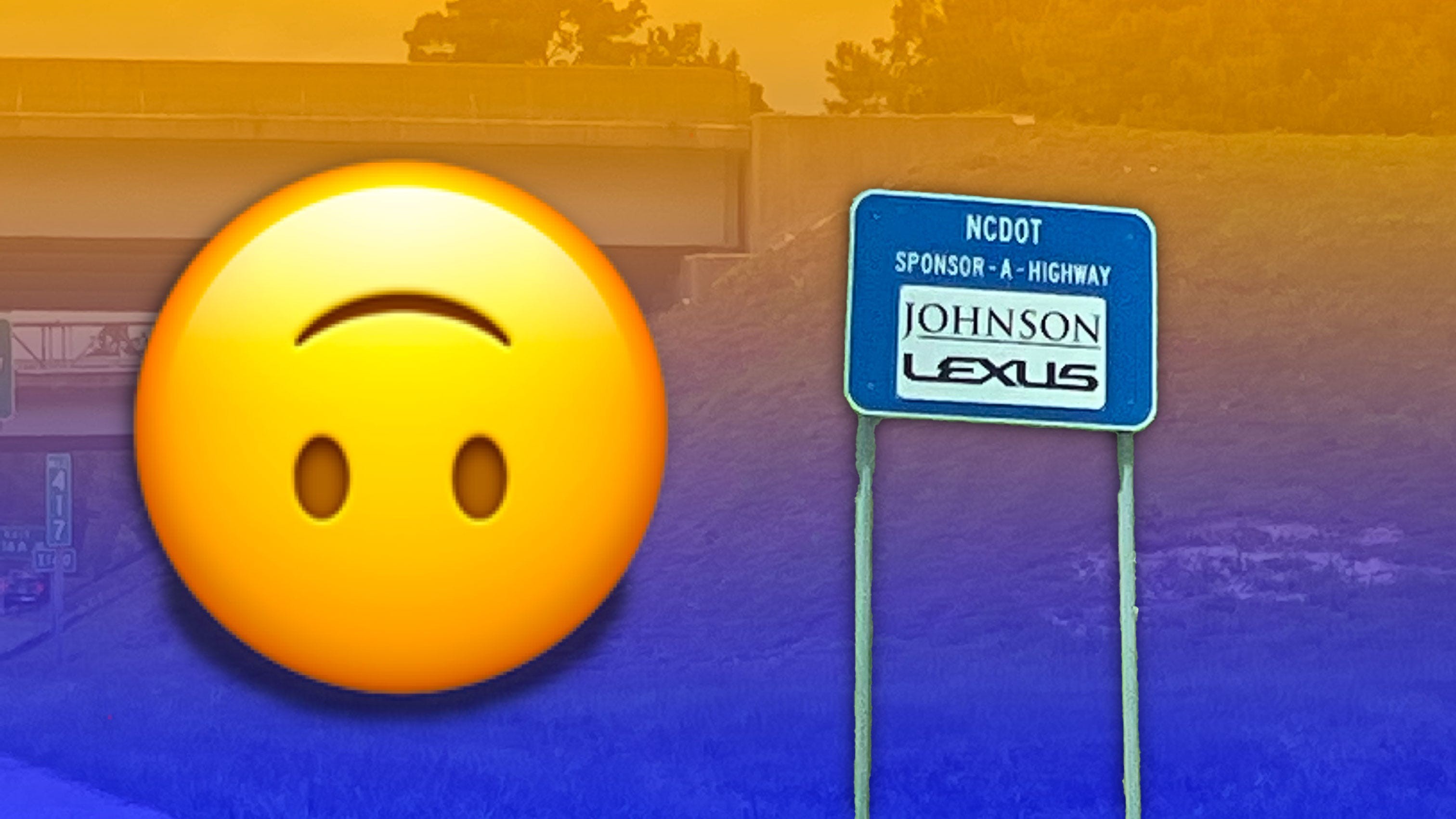Driving down a highway, you’re bombarded with visual stimuli. Billboards, traffic signals, and of course, other vehicles, all compete for your attention. But have you ever noticed the subtle, recurring presence of “Sponsor-a-Highway” Car Signs? These seemingly innocuous markers play a significant role in both roadside advertising and litter control, and this article delves into the fascinating story of one car dealership’s ambitious approach to leveraging them.
Johnson Automotive, a dealership chain in North Carolina, has taken highway sponsorship to an unprecedented level. By strategically securing virtually every available “Sponsor-a-Highway” sign along major freeways in the eastern part of the state, they’ve created a ubiquitous advertising campaign that’s both ingenious and controversial.
The Ubiquitous Presence of Johnson Automotive Car Signs
From Raleigh to Wilmington, and along I-540 and I-795, where billboards are scarce or non-existent, Johnson’s car signs appear mile after mile. This saturation strategy was born out of necessity and a clever understanding of advertising principles. Traditional billboards are increasingly regulated, with restrictions on placement, size, and even existence in some cities. Recognizing the limitations of billboards, Johnson Automotive sought an alternative that would guarantee consistent visibility.
The Strategy Behind the Signs: More Than Just Advertising
The sheer number of signs – over 1,196 – initially sparked criticism and accusations of excessive advertising. Many mistook the “Sponsor-a-Highway” signs for the “Adopt-a-Highway” program, assuming Johnson was simply taking credit for volunteer litter cleanup efforts. However, the reality is more nuanced.
While “Adopt-a-Highway” requires volunteers to physically clean roadsides, “Sponsor-a-Highway” allows businesses to fund professional litter removal services in exchange for displaying their logo on the signs. Johnson Automotive’s investment of over $2 million annually not only ensures their brand’s constant visibility but also contributes significantly to keeping North Carolina’s highways clean.
The Impact of Car Signs: Advertising, Litter Control, and Public Perception
The strategy has proven effective in generating brand recognition. The constant repetition of the Johnson logo creates a lasting impression, linking the dealership with major car brands like Lexus, Subaru, and Hyundai in the minds of drivers. This approach aligns with the core principle of advertising: repeated exposure builds familiarity and ultimately influences consumer behavior.
Furthermore, Johnson’s involvement in the “Sponsor-a-Highway” program directly addresses the growing problem of roadside litter, a significant environmental concern and a costly issue for the state. By funding professional cleanup, the company contributes to a cleaner environment and saves taxpayer dollars.
While initially met with some negative reactions, clarifying the distinction between sponsoring and adopting a highway has helped shift public perception. What initially seemed like aggressive advertising is now often viewed as a positive contribution to the community.
The Future of Roadside Car Signs
Johnson Automotive’s success with highway sponsorship may inspire other businesses to adopt similar strategies. As traditional advertising methods become increasingly saturated and expensive, innovative approaches like this offer a unique way to achieve brand visibility and contribute to public good. The subtle yet pervasive presence of car signs on our highways serves as a reminder of the evolving landscape of advertising and its potential for positive impact. The next time you’re on the road, take a closer look at those roadside markers; they might just tell a more complex story than you initially thought.



